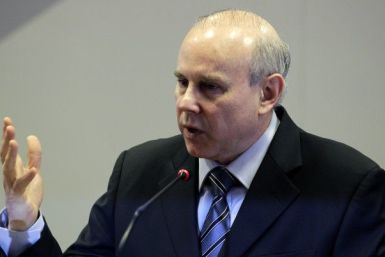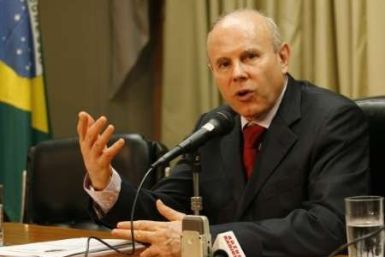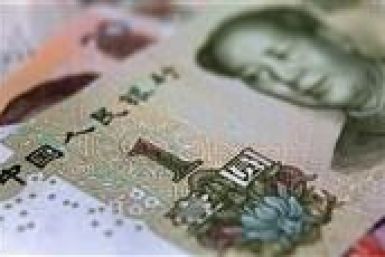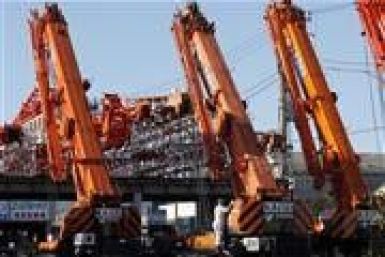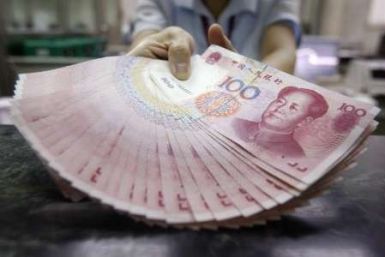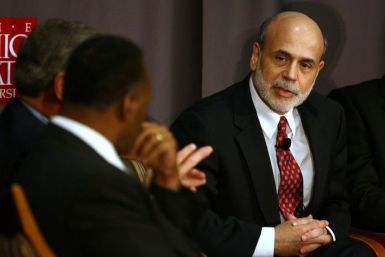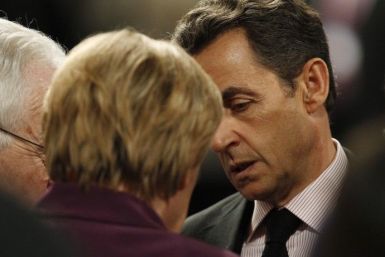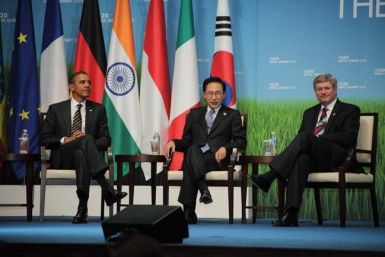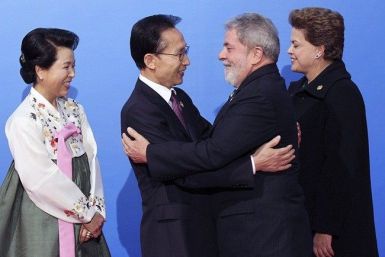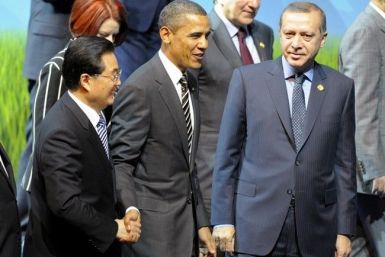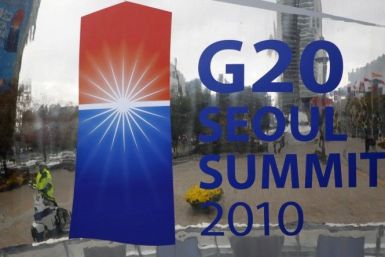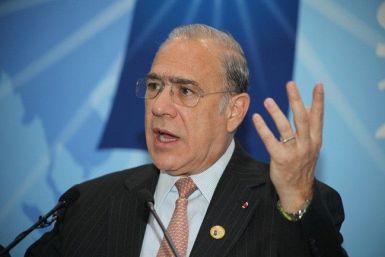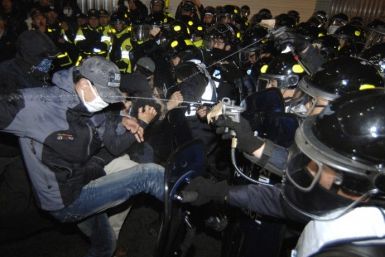Criticism of China's exchange-rate policy continues throughout the US. This column argues that the US is in fact the exchange rate manipulator, due to its ongoing quantitative easing. What the US needs to do for a sustainable turnaround is to learn from other successful economies like China and Germany - not de-rail them.
China's trade surplus fell to its lowest in nine months in January after imports surged, supporting the government's case ahead of a G20 meeting that it is doing enough to spur domestic demand without speeding up currency appreciation.
China's trade surplus fell to its lowest in nine months in January after imports surged, supporting the government's case ahead of a G20 meeting that it is doing enough to spur domestic demand without speeding up currency appreciation.
Chinese President Hu Jintao is meeting with Congressional leaders on Thursday, with discussion of the yuan on the agenda.
History shows the U.S. can force China to revalue the yuan.
U.S. Senator Charles Schumer, D-NY, is greeting Chinese President Hu Jintao’s visit to the U.S. this week with a promise of legislation to impose tariffs on Chinese goods to combat China’s alleged currency manipulation.
Brazil's Finance Minister Guido Mantega has accused the United States of engaging in currency manipulation, and said his country would raise this issue at the World Trade Organization (WTO), adding that the U.S. and Chinese policies are fomenting a trade war.
The government of Brazil is pledging to slow down the rally of its currency, the real, by imposing more capital controls in order to help export companies that have been hurt by gains in the currency.
The Gold Price touched a 4-session high at $1390 per ounce in early London trade on Tuesday, rising for Euro and UK investors as world stock markets hit new two-year highs.
China’s trade surplus rose in November raising fresh fears about renewed criticism from the US and Europe over Beijing’s currency policy.
Japan’s trade with other nations rose only slightly in October, raising fears of a slowdown in the recovery of the export-dependent country.
Emerging East Asian economies will grow more than forecast this year but growth will slow in the region next year, the Asian Development Bank (ADB) said on Tuesday.
In a CBS interview, Federal Reserve Chairman Ben Bernanke took shots at foreign critics who openly bashed QE2 in the days leading up to the November 11 G20 Summit.
China's currency peg hurts U.S. exports but is also bad for the Chinese economy, since it prevents the country's authorities from running their own monetary policy, Federal Reserve Chairman Ben Bernanke said.
France and Germany, the two leading countries of the euro zone, may have intentionally engineered a competitive currency devaluation by pushing private investors to share the burden of future sovereign bailouts.
The financialization of commodities threatens to divert capital from economically useful purposes and use it instead to drive up the cost of essential commodities for end users.
How much was accomplished at the just-concluded G20 summit in Seoul, South Korea likely depends upon whom you are asking. While some observers feel the summit cannot really do anything to address the fundamental differences between diametrically opposed economies (see: U.S. vs. China), others feel that progress of any such summit has to be measured in slow, patient doses.
IB Times interviewed Michael Yoshikami, president of YCMnet Advisors of Walnut Creek, Cal. To get his views on the recently completed G20 summit in Seoul, Korea.
A major question emerging here in Seoul on the final day of the G-20 Summit, as world leaders personally powwow on global dilemmas, is this: Can the U.S. and China play nice?
The global currency war will likely dominate discussions at the G20 Seoul summit. Other issues on the agenda include global financial regulation, development gaps, and dealing with disruptive capital inflow and outflows.
Angel Gurria, Secretary- General of the Organization for Economic Cooperation and Development, an organization consulted by the nations of the world, including most of the nations of the G-20, put the very complex matter of what the G-20 is attempting to do at its summit in Seoul this week, in simple and precise terms.
Two things are always present at G20 summits: the gathering of the most powerful international elites and the gathering of common citizens and workers to protests against them.






